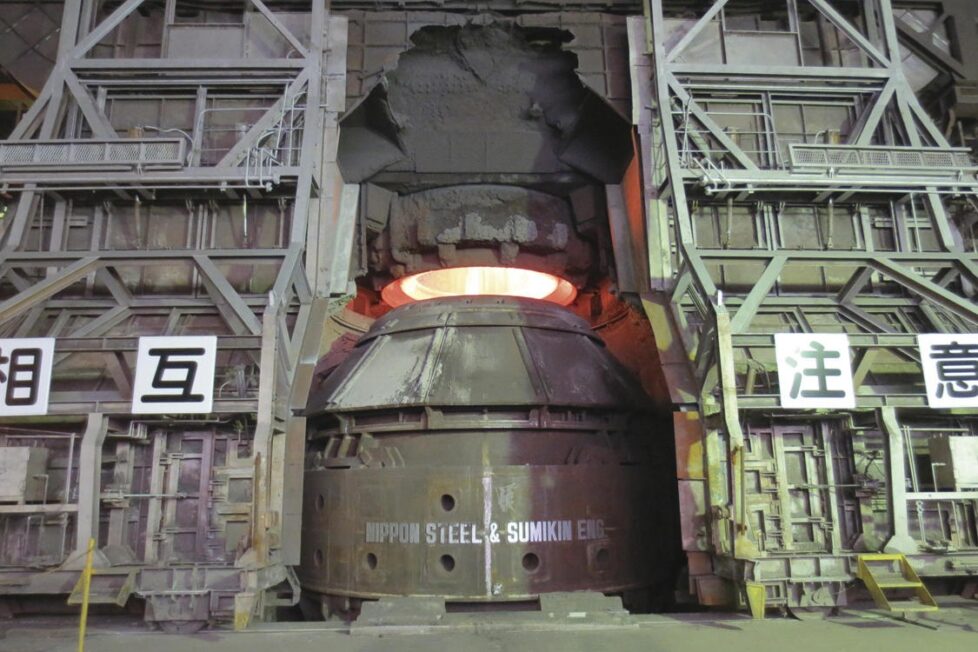Nippon Steel Unveils Measures to Reduce Carbon Impact of Steelmaking

Tokyo-based Nippon Steel, one of the largest steelmakers in the world, has announced new carbon-reducing actions as part of the company’s Carbon Neutral Vision 2050 project. Its plans are to begin the shift to Electric Arc Furnace (EAF) steelmaking from blast furnace (BF) steelmaking and to manufacture more no-oriented electrical steel sheets (NO).
In March 2021 the company announced its Carbon Neutral Vision, which aims to reduce CO2 emissions by 30% by 2030 and achieve carbon neutrality by 2050. Its plan consist of two approaches, firstly to lower the emissions of its own operations by decarbonizing the steelmaking process, and secondly to provide steel products and solutions that help its customers reduce their emissions.
The demand for low-carbon steel is set to rise as manufacturers worldwide strive to decarbonize their supply chains. Steelmaking, a major CO2 emitter, poses challenges in reducing greenhouse gas emissions, accounting for 7% – 9% of direct emissions from fossil fuel use globally.
As opposed to burning coal, an electric arc furnace uses electric currents to create the heat needed to melt and mold metal. By starting studies into the movement from BF steelmaking to EAF steelmaking, Nippon Steel expects to significantly reduce carbon emissions, but the company accepts production costs will increase, suggesting more economic support is needed from the Japanese government.
After previously unveiling plans to enhance capacity and improve the quality of electrical steel sheet manufacturing, the company has now announced additional measures aimed at boosting its NO production capabilities. With the demand for eco-friendly cars continuing to rise, there will also be a significant surge in the demand for NO, a high-efficiency, high-grade material used in the production of motor iron cores.
Other measures in place to help the company realize its vision include the launch of solution technology NSCarbolexTM Solution and steel product NSCarbolexTM Neutral, and the issuance of a green bond to increase NO production capacity and quality.
In a statement announcing the studies to shift to EAF steelmaking, Nippon Steel said that the move will require “huge capital expenditures and an increase in operational costs, including raw materials and electricity costs,” adding:
“We will continue efforts to strongly urge the government to swiftly develop policy support measures that are currently under consideration, and to promote public understanding of carbon-neutral steel products.”
The post Nippon Steel Unveils Measures to Reduce Carbon Impact of Steelmaking appeared first on ESG Today.